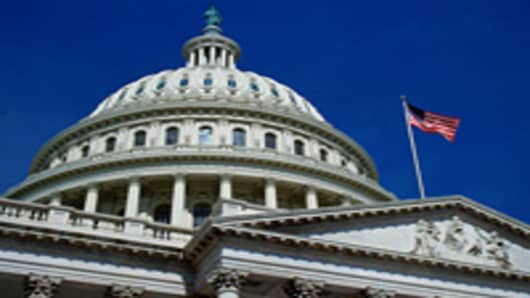Middle market companies are the true growth engine of the U.S. economy. Unfortunately, this engine continues to be seriously hampered by federal regulation.
There are more than 100,000 middle market companies dotting the U.S. landscape with annual revenues ranging from $25 million to $1 billion. It’s a diverse group of companies not neatly categorized. Some are publicly-traded, while others are privately held. Some are family businesses and others are sole proprietorships or partnerships.
The economic importance of the middle market to the U.S. cannot be overstated. This group of companies is responsible for generating over $9 trillion in annual revenue, according to data from the U.S. Census.
These companies employ 32 million Americans, creating more U.S. jobs than the 500 largest U.S. corporations. Thus, the issues of concern to middle market companies should be the shared concern of all Americans.
As the CEO of an investment bank based in Middle America and specializing in the middle market, I have the opportunity to speak regularly with executives of mid-sized companies. Many of these CEOs share my concern about the growing thicket of federal regulatory policy. Make no mistake; the confusion fostered by an onerous and uncertain regulatory regime is a deterrent to business investment. Impairing business investment thwarts economic and employment growth. In addition to our investment banking operation, we have a significant private equity group, Stephens Capital Partners. Companies we own 50% or more of employ over 10,000 people. We see first-hand through these companies the high cost of the regulatory burden across all industries.
Consider that the current annual cost of government regulation at a federal level is estimated to total about $1.1 trillion, according to the U.S. Chamber of Commerce. Additionally, federal agencies issue about 4,000 new regulations annually.
On July 19, 2012, the House Committee on Oversight and Government Reform issued a report entitled, “Continuing Oversight of Regulatory Impediments to Job Creation: Job Creators Still Buried in Red Tape.” Among the key findings, the report concludes that in one year alone, from 2010 to 2011, the number of proposed regulatory rules increased 18.8 percent.
Under the administration of President Obama, we are confronted with the prospect of hundreds of new rules mandated by Dodd-Frank and the Patient Protection and Affordable Care Act (aka ObamaCare). In fact, the new House report cited above estimates that Dodd-Frank alone will result in “roughly 400” new rules.
Last October at our annual Stephens CEO Summit, I polled executives of middle market companies on the question of federal regulatory policy. These executives expressed a clear message: Government regulation needs to be reinvented and reined in if we expect to reignite the U.S. economy and I agree with them.
If we really want to once again unleash the capitalist spirit that made our country great, let’s be smarter about regulatory policy. Here are several fundamental first principles we should all embrace.
- Create a new regulatory framework based on cost-benefit analysis
- Design a regulatory system that is flexible and fair to all parties involved
- Foster a regulatory philosophy that encourages innovative solutions and rewards problem-solving
Resetting the course of regulatory policy is no easy task. It will take time and political will. In the meantime, there are specific legislative remedies worthy of support:
- The Unfunded Mandates Accountability Act would require federal agencies to assess the potential specific effects of new regulations on job creation or job loss. This reform would require consideration of market-based and non-government alternatives to regulations. It would make federal agencies choose the least burdensome regulatory option that achieves the policy goal set out by Congress. It also would extend the Unfunded Mandate Reform Act of 1995 to independent federal agencies outside of the cabinet-level departments of the federal government.
- The Regulations from the Executive In Need of Scrutiny Act – or REINS Act is a bill requiring the most costly federal regulations to be passed by Congress and signed into law by the President before they take effect so the American people have someone to hold accountable for the government regulations that increasingly affect their lives. It passed the House last December and should get serious consideration in the Senate. It’s an example of common sense legislation that the American people think is long overdue.
- Congressman Tim Griffin (R-Arkansas) has introduced H.R. 4078, the Regulatory Freeze for Jobs Act, to prevent new pending regulatory threats from enactment. The bill would prohibit federal agencies from issuing economically significant regulations (an impact of $100 million or more) until the unemployment rate falls to 6 percent or less. The unemployment rate currently stands at 8.2 percent and has been higher than 8 percent since February, 2009.
These are important small steps in the right direction and that’s the important point. Once middle market business leaders gain a sense that Washington, D.C. is serious about fixing the regulation problem, it will restore confidence and lead to business reinvestment by middle market and other companies. Resetting regulatory policy will help foster the environment for a new virtuous cycle of growth in the U.S. economy.
Warren A. Stephens is CEO of Stephens Inc., an investment bank.


